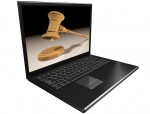 A summer 2014 formal opinion by the Association of the Bar of the City of New York approved the use of virtual law offices (“VLOs”) by New York lawyers. See N.Y.C. Bar Assoc. Formal Op. No. 2014-2. Recognizing that “the economic and technological conditions of modern law practice justify some flexibility in practice arrangements,” the committee noted that it “should not create obstacles to the use of VLOs as long as the interests of clients, the courts, and the legal system are protected.” Ultimately, the committee concluded as follows:
A summer 2014 formal opinion by the Association of the Bar of the City of New York approved the use of virtual law offices (“VLOs”) by New York lawyers. See N.Y.C. Bar Assoc. Formal Op. No. 2014-2. Recognizing that “the economic and technological conditions of modern law practice justify some flexibility in practice arrangements,” the committee noted that it “should not create obstacles to the use of VLOs as long as the interests of clients, the courts, and the legal system are protected.” Ultimately, the committee concluded as follows:
A New York lawyer may designate the street address of a VLO as the “principal law office address” . . . . In addition, the lawyer may use the VLO address on business cards, letterhead and law firm website.
No provision of the Louisiana Rules of Professional Conduct expressly permits a Louisiana lawyer to work out of a virtual law office. However, no provision expressly prohibits the practice, and Rule 7.2 implicitly permits it. That rule provides as follows:
All advertisements and unsolicited written communications provided for under these Rules shall disclose, by city or town, one or more bona fide office location(s) of the lawyer or lawyers who will actually perform the services advertised. If the office location is outside a city or town, the parish where the office is located must be disclosed. For the purposes of this Rule, a bona fide office is defined as a physical location maintained by the lawyer or law firm where the lawyer or law firm reasonably expects to furnish legal services in a substantial way on a regular and continuing basis, and which physical location shall have at least one lawyer who is regularly and routinely present in that physical location. In the absence of a bona fide office, the lawyer shall disclose the city or town of the primary registration statement address as it appears on the lawyer’s annual registration statement.
Rule 7.2(a)(2) (emphasis added). By acknowledging that some lawyer-advertisers might practice “[i]n the absence of a bona fide office,” Rule 7.2 clearly reflects that there is nothing inherently objectionable about practicing without a physical law office.
Assuming that this practice is unobjectionable, what should a virtual lawyer do to assure compliance with the Louisiana Rules of Professional Conduct? Here are a few “dos” and “don’ts” for the Louisiana virtual practitioner:
- Do store your clients’ data securely. While locks and alarm systems protect client data at a traditional law office, the virtual lawyer needs to protect client data stored in the cloud using encrypted storage services and strong passwords. And don’t forget to back up that data using redundant technology. For more on the issues associated with a lawyer’s cloud storage of client data, see Cloud Computing Ethics.
- Do assure that you make arrangements for a physical location to accept service of legal documents.
- Do adequately supervise any nonlawyer personnel who facilitate your virtual practice. See Louisiana Rule 5.3.
- Do assure that you have a reasonable plan for access to an office or other private location if it becomes necessary for you to physically meet with your clients in a confidential setting.
- Don’t mislead prospective clients into thinking you have a physical office when you do not. See Louisiana Rule 7.2(c)(1) (prohibiting false or misleading statements).
- Don’t engage in the unauthorized practice of law. Before forming a lawyer-client relationship, assure that the prospective client wants advice relating to Louisiana law or attendant to an actual or prospective proceeding in a Louisiana tribunal. See Louisiana Rule 5.5 (unauthorized practice of law).
